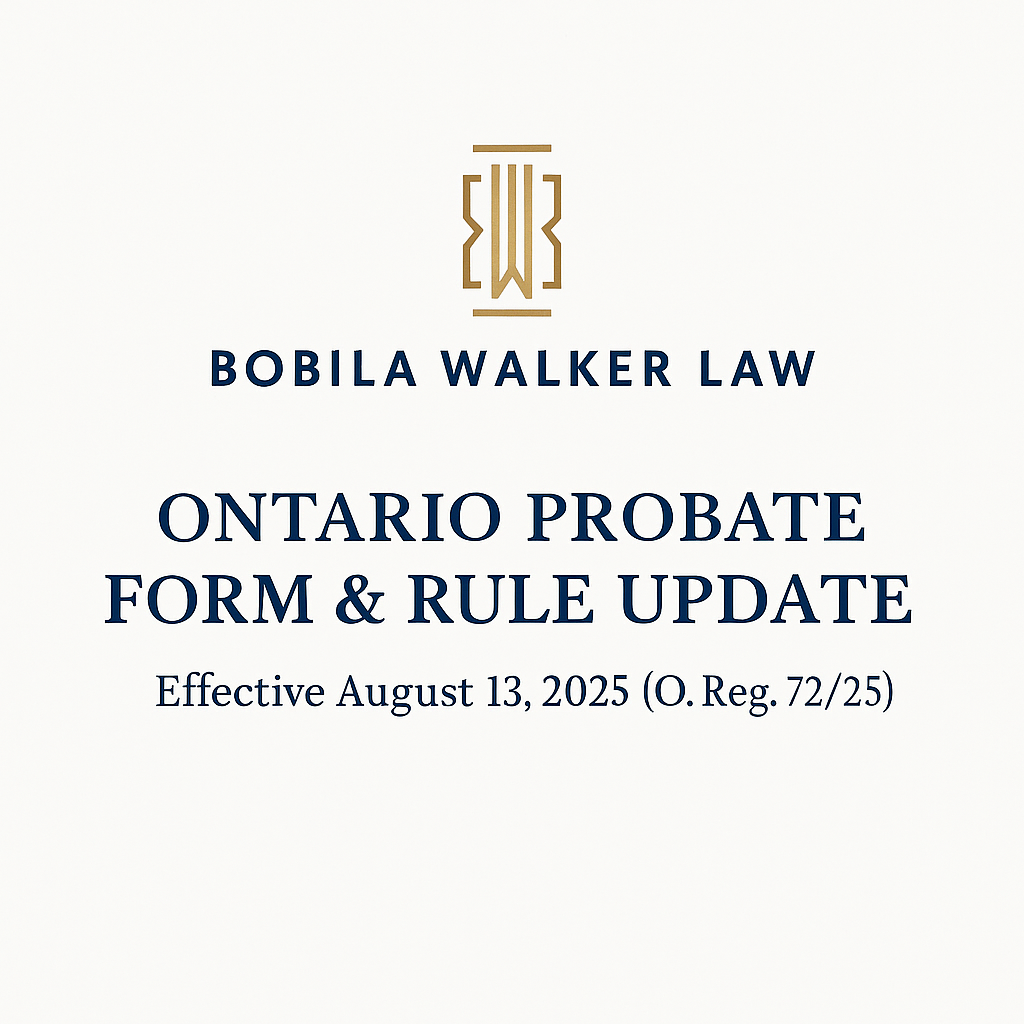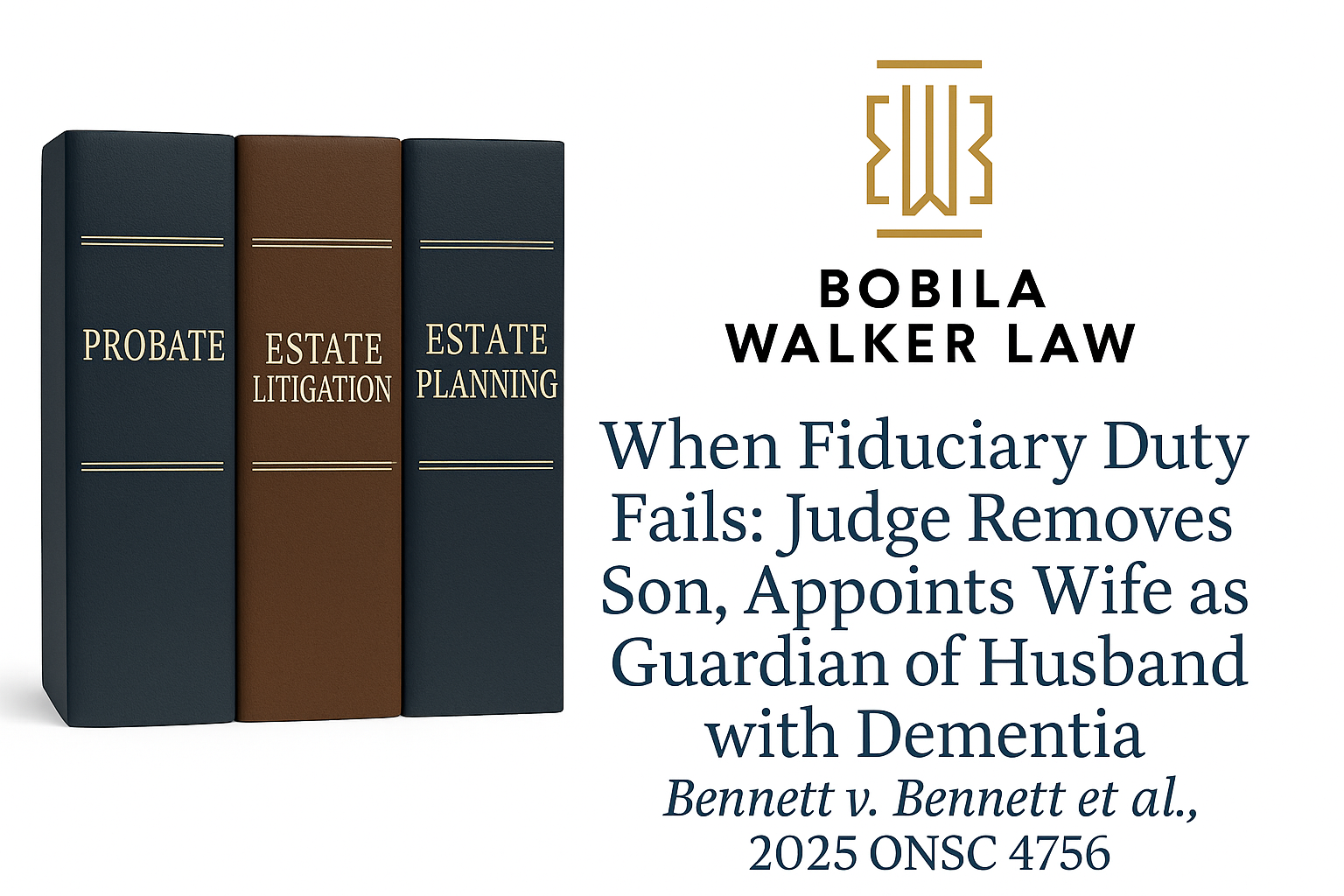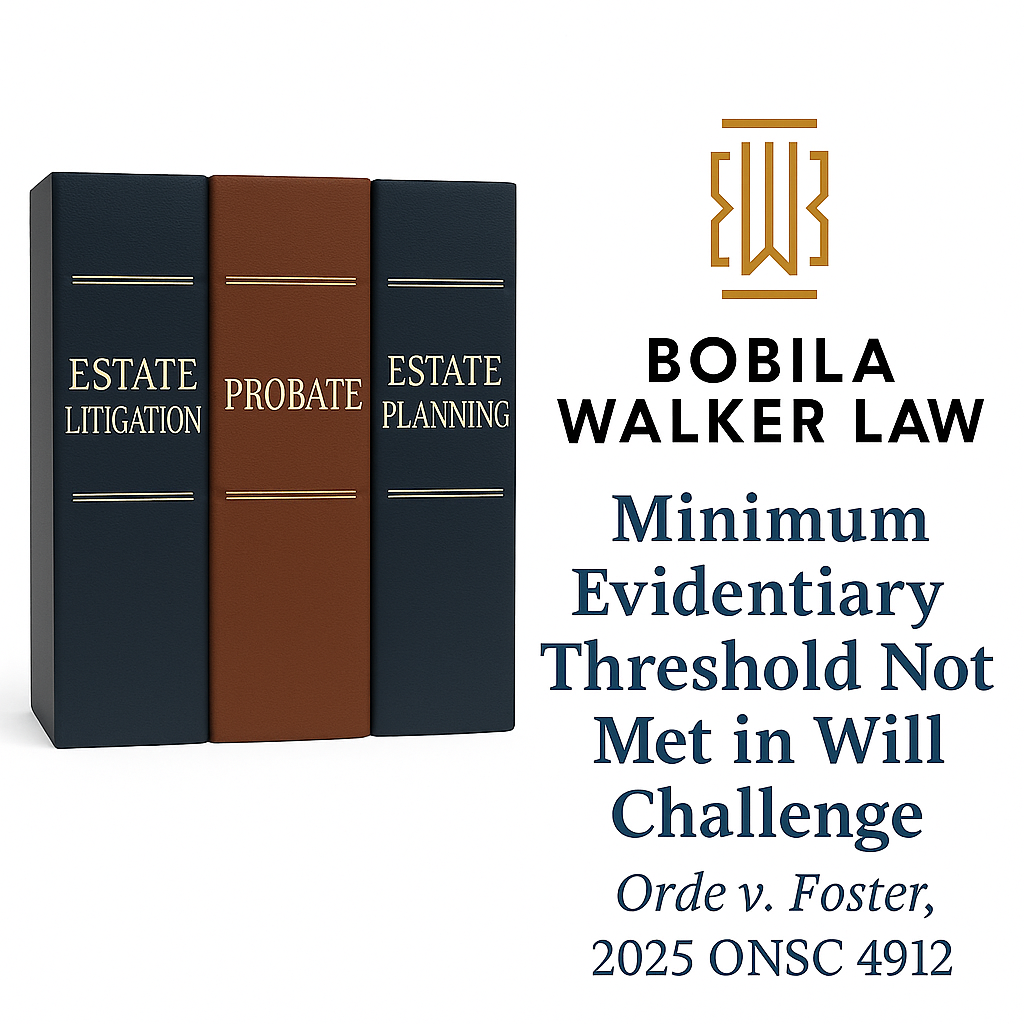Ontario Estate Court Forms Updated: What You Need to Know
The Ontario Ministry of the Attorney General has once again updated the estate court forms, this time under O. Reg. 72/25, which took effect on August 13, 2025. These reforms are designed to streamline probate applications, reduce administrative hurdles for estate professionals, and ultimately make the process clearer and more efficient for everyone involved in estate administration.
Key Highlights of the August 2025 Changes
1. Clearer Bond Requirements
The language around bonds in probate applications now mirrors Rule 74.11(5) of the Rules of Civil Procedure, providing more straightforward guidance on when a bond is required. This reduces confusion and aligns the forms with established procedural rules.
Updated Forms: 74A, 74J, 74.1A
2. Enhanced Service Details
Applicants must now include more detailed information when serving the Children’s Lawyer, Public Guardian and Trustee, guardians, attorneys for property, parents of minors, or proposed litigation guardians. This means specifying:
-
The recipient’s legal role
-
Method of service (e.g., personal delivery, registered mail)
-
Date and location of service
-
Supporting proof such as affidavits or delivery confirmations
The revised forms also contain expanded affidavit language to ensure proper notice has been given and reduce delays caused by incomplete records.
Updated Forms: 74A, 74B, 74B.1, 74J, 74.1A, 74.1B
3. Improved Beneficiary Information
Beneficiaries now receive clearer instructions on how to file a Notice of Objection and better explanations of what a probate certificate means. These updates make it easier for beneficiaries to understand their rights and make informed decisions.
Updated Forms: 74A, 74.1A, 74J
4. Streamlined Objection Process
Registrars will now send only a Notice to Applicant (Form 74O or 74.1D for small estates) when a Notice of Objection is filed. The redundant Form 75.2 has been revoked. This reduces unnecessary duplication and simplifies the objection process.
Affected Rule: 03(3)
Updated Forms: 74O, 74.1D
Revoked Form: 75.2
5. Eliminating Redundant Filing in Passing of Accounts
Contested applications to pass accounts no longer require duplicative filings, reducing administrative burdens.
Affected Rule: 18(11.5 and 11.7)
6. Grace Period for Older Documents
Documents signed before August 13, 2025 will generally be accepted until December 31, 2025, under a Ministry directive. However, some court offices have reportedly rejected older versions despite this guidance. To minimize risk, it is best practice to use the updated forms wherever possible.
Filing Procedures Modernized
Beyond revising the forms, the Ministry has also clarified how estate professionals should file them.
What’s been clarified:
-
The Information Form remains mandatory for probate filings by email. This cover sheet helps court staff identify the type of application and supporting documents. While already part of the Superior Court of Justice’s Practice Direction, the requirement has now been formalized across all court offices.
What’s new:
-
Broader flexibility in how documents can be filed: email, mail, or in-person.
-
Expanded eligibility for email filing (including applications, affidavits, consents, draft certificates, and objections).
-
Clearer guidance on when to use Civil Claims Online or Civil Submissions Online for estate litigation documents.
-
Standardized practices under the Consolidated Practice Direction, Parts I and IV of the Superior Court of Justice.
These refinements should help reduce confusion and make filing more accessible, particularly for legal professionals managing high volumes or working remotely.
Final Thoughts
The August 2025 estate form revisions mark a significant step toward greater clarity, consistency, and efficiency in Ontario’s probate process. By simplifying procedures and cutting down on redundancy, the updates will benefit estate professionals, beneficiaries, and families alike.
At Bobila Walker Law, our estate team stays up to date with every regulatory change so that our clients receive clear, accurate, and effective guidance. If you have questions about how these new rules may affect your probate application or estate administration, we are here to help.




